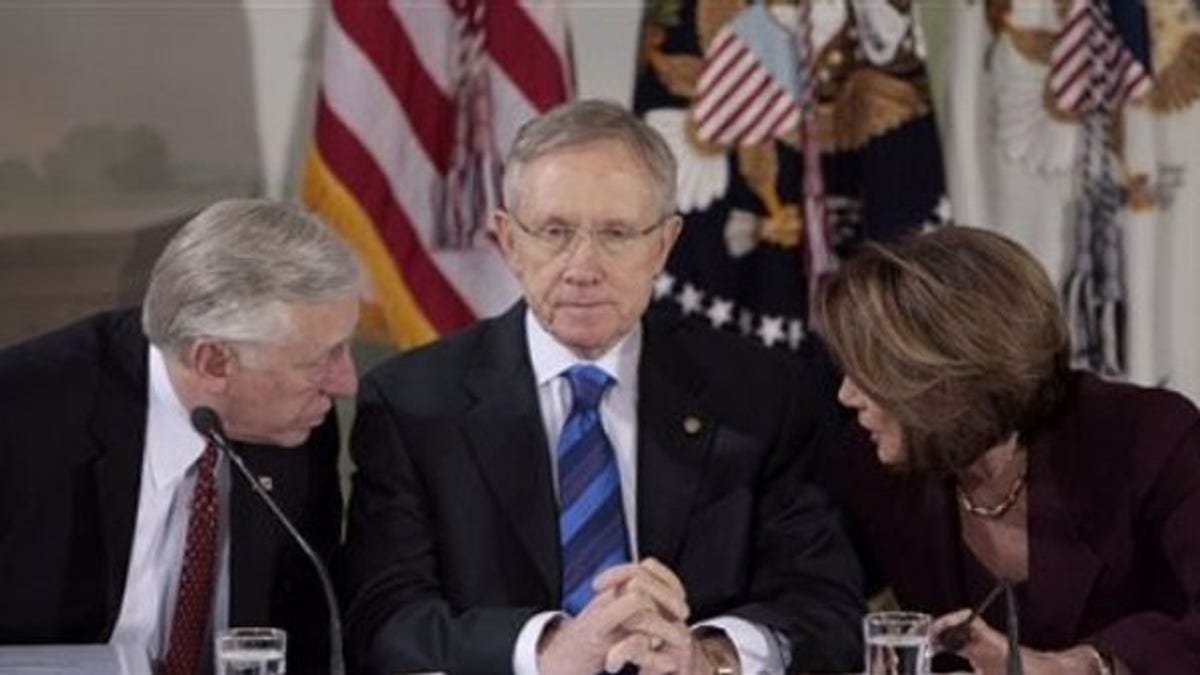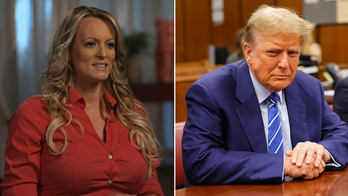
Senate Majority Leader Harry Reid, center, listens as House Majority Leader Steny Hoyer, left, talks to House Speaker Nancy Pelosi at a health care reform meeting Feb. 25 in Washington. (AP Photo)
House Democrats' distrust of the Senate is turning up as a major roadblock to passing health care reform. And they're playing right into Republicans' hands.
With President Obama pushing anew to pass the health care package through Congress in the coming weeks, several House Democrats have voiced concern that the Senate could betray them if they go along and pass its version of the health bill.
"The Senate has given us a lot of reason not to trust them," Rep. Jason Altmire, D-Pa., who voted against the House bill last year and is currently undecided, told "Fox News Sunday."
Trust is such a key factor because the end game for health care reform involves House lawmakers passing the Senate-passed bill, and then crossing their fingers in hopes that the Senate will follow up with a packages of changes to get it more in line with what many House Democrats want to see. That bill could, under the scenario, be passed with a simple majority by using the controversial tool known as reconciliation.
But what if the Senate never passes a second bill?
That question is one that Republicans have tried to raise and is apparently nagging at Democrats.
Altmire said Sunday that the trust factor could be a stumbling block.
"Certainly that's a key component of the dynamic of getting the votes -- is there has to be some certainty that the Senate is going to follow through on their part," he said.
He said the thought that the Senate would leave the House hanging "gives me concern."
Other Democrats have suggested the House should not budge until the Senate passes the package of changes -- though it's not clear if that's even allowed under Senate rules.
Rep. Anthony Weiner, D-N.Y., told CBS News last week that the Senate "has been the single problem" with getting the bill out of the House. He referenced the hundreds of bills that have languished in the Senate after passing the House.
"Fool me once, shame on me. Fool me 290 times, shame on you," Weiner said.
The paranoia about the Senate turning its back on the House has been fed by Republicans hoping to send the bill back to the drawing board.
"Once they pass that bill, what's the incentive for anyone here (in the Senate) to do anything?" Sen. Judd Gregg, R-N.H., said last week. "I don't see the incentive for them to pass a reconciliation bill."
Senate Minority Leader Mitch McConnell, R-Ky., also suggested the Senate could sit on the package of fixes.
"The House has to trust the Senate that we'll go back in and fix the most egregious political problems," he told ABC News' "This Week" on Sunday.
Trust is hardly the only roadblock, though it is a big one. Another hurdle seemingly getting higher by the day is restrictions on abortion funding.
The House-passed bill was considered far stricter on that issue, and many House Democrats have threatened to reject the Senate bill without more assurances.
"Given the vote dynamic, abortion may be the decisive issue," Altmire said.




